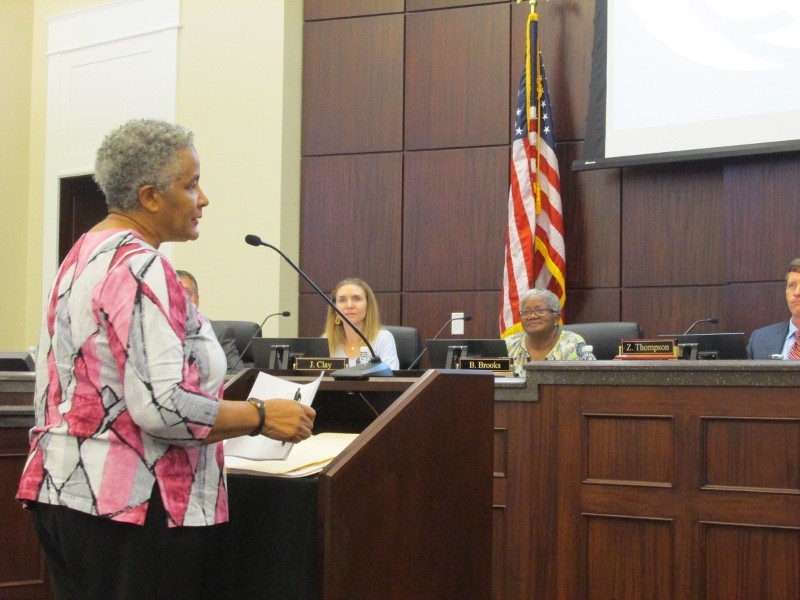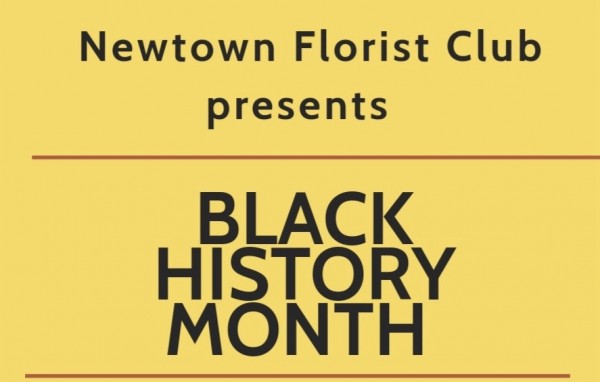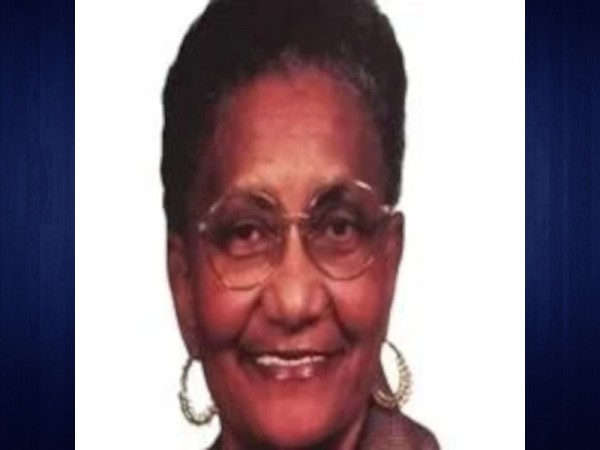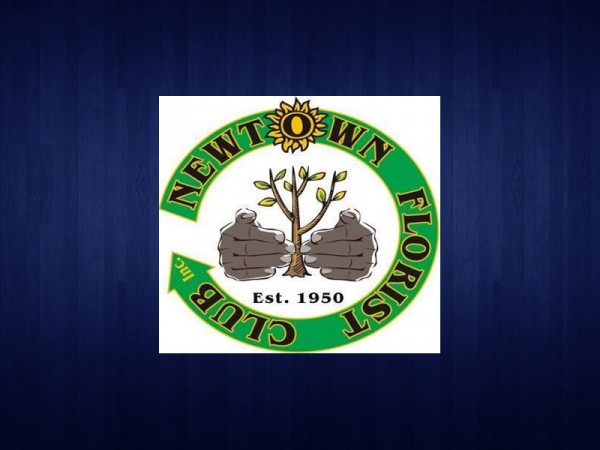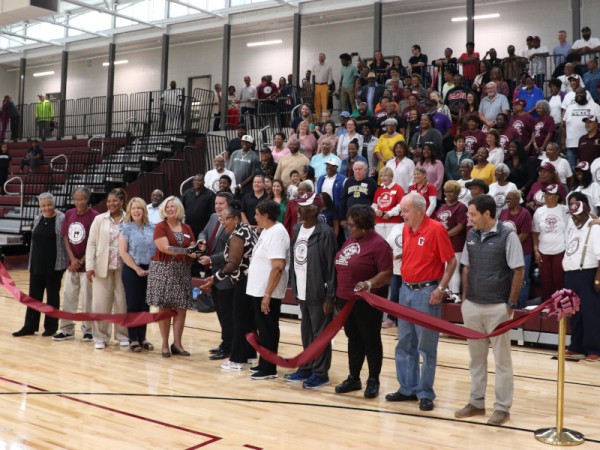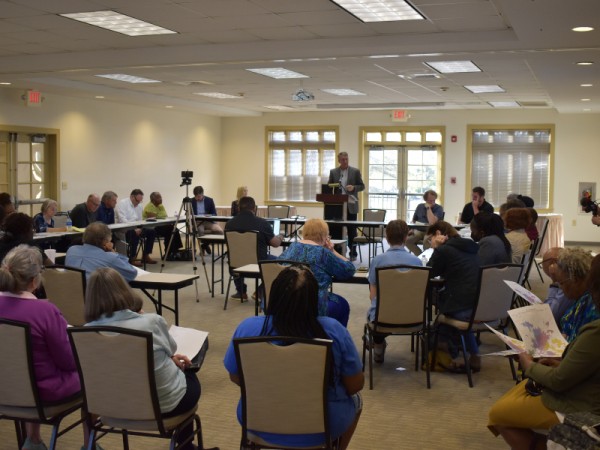Reverend Rose Johnson is a Gainesville native, born and raised. She serves the community as the executive director of the Newtown Florist Club and advocates for equality and justice in the city of Gainesville and beyond.
Rev. Johnson was born into the Buffington family - a family of sharecroppers who worked in Gillsville before they made their way to live with Johnson’s grandparents off Cooley Drive in Gainesville. Johnson was around 12 years old when her family made the 15-mile trek to the city, she said.
“My family lived in a three-room shotgun house and, you know, that was where we lived and that was how we lived, with an outside bathroom,” Johnson said.
Johnson grew up sharing the small home with five other people – her two grandparents, her mother, older brother, and her uncle. She remembered the chapter of her young life as a story filled with racial injustices and traumatic experiences. Those same experiences caused her some of the deepest pains in her life, but they were also variables that molded her into the woman she is today, she said.
“When I look back on it now, I understand more and appreciate more of all that happened during that season of my life, because it helped me to understand the race and class dynamics that were happening in our community, yes, but all across the south,” Johnson said.
Johnson spent her earliest school days at Fair Street School and E.E. Butler High School – both segregated schools for Black students in Gainesville. Segregated schools were Johnson’s only experience at the time, but those were times she looked back on as a time of inspiration by strong women who were administrators, teachers, students and role models in her life.
“It was just a melting pot of richness and culture and those women left an indelible footprint in both my heart and on my soul and I believe that it is there that I came to understand, really understand, that as a girl, as a young woman in a community like ours, that there was no way that I could not be, as a young woman growing up, all that I wanted to be, all that I inspired to be and was inspired to be, because there were so many examples around me of women who were just doing incredible,” Johnson said.
In 1969, E.E. Butler closed its doors and students were forced to merge with students at Gainesville High School. Johnson was among those Black students who were forced to integrate for the first time.
“It was a very traumatic experience for probably the first two or so years. We made it though but there were, you know, a lot of tensions there,” Johnson said. “And even though we still had some difficult days, the school experience became a whole lot better and easier to be educated in and I’m grateful for that. I’m grateful for it even now.”
As a young girl living in the Newtown community, Johnson was raised in what she called a village. Everyone was considered a loved one without necessarily being related and they all shared similar life struggles, challenges and experiences. The children who grew up in the community also experienced hardships for nothing other than the color of their skin and where they lived.
Johnson remembered a time when she and the other neighborhood kids would play outside and be covered in what they were told was grain dust from a local industry that processed dog food near the southern part of Gainesville. It wasn’t until later when the community began to suffer from throat, lung and colon cancers, that people realized the air quality was not healthy in the Newtown area.
“We’d be out there playing and yellow grain dust would be all over our bodies and we would continue to just be kids, but didn’t realize we were being soured with a kind of pollutant that would, you know, once inside our respiratory system, it would impact us in such a way,” Johnson said.
The grain dust was among one of several issues the people of Newtown faced. The community smelled of sewage. They didn't know if the water was safe to drink or if the ground was safe to play on, and people were warned against planting fruit gardens in their own backyards, Johnson said.
On top of environmental concerns, it was not uncommon for people in the community to experience an abuse of power from police and visits from hate groups such as the Ku Klux Klan.
“It was a multifaceted experience that really does not ever go away with you,” she said. “You live and learn, and you grow. And this desire for a better community, all of those experiences stem from this desire that we have daily for a better future for those who will live in this community, and not just in the Newtown community, but in this community that those experiences will not ever be repeated in our community and that’s really why we do what we do.”
Initially, Newtown Florist Club began as a social club started by women in the community. Women and girls, or club members, would deliver flowers to people in the community who lost loved ones, many of which whom died from cancer related illnesses. Club leaders did not realize they were preparing club members for their own funerals when they, too, would become affected by airborne toxins that lingered in the community, Johnson said. She became a club member when she was 12 years old.
“They would not have had it in their view that some of the same women and others would have to be flower girls for them when they passed away from throat, lung and colon cancer,” Johnson said. “So, as their work evolved, as their mission of the organization evolved, then they had not just one issue to grapple with, there were multiple issues – the environment, housing, education, employment, all of the issues that impact a person’s life….it was undeniably a very challenging time.”
After Johnson graduated from Gainesville High, she continued her education at Lanier Technical College where she graduated with honors and got a degree as an x-ray technician. She then attended Atlanta Junior College where she studied political science. After that, the young woman made her way to Charleston where she would attend Trident Technical College for paralegal studies and social work. She ended her academic career at Emory University’s Candler School of Theology where she received her master’s degree in divinity and pastoral ministry.
“As early as 12 years old, I didn't realize that I had a prophetic calling on my life and which helped me to better understand this love for community and this passion for service and, you know, just being a public servant,” Johnson said.
Johnson put in time at a non-profit organization called the Center for Democratic Renewal in Atlanta, a national hate crimes research center under the leadership of the Rev. C.T. Vivian, Johnson said.
Vivian died in 2020 and was a close friend and lieutenant of Martin Luther King Jr., according to the Associated Press.
“I had the opportunity to lead and help establish the National Coalition for Burned Churches and Community Empowerment, which was an organization that was established to help pastors throughout the south and congregations rebuild churches that had been arsoned and firebombed,” Johnson said. “It was through that process that I met my husband who was a pastor in Charleston.”
Johnson spent around 13 years in Charleston before she returned to Gainesville. While she was there, she answered a calling to become a part of pastoral ministry at the African Methodist Episcopal Church. She married and had two daughters who would later give her six grandchildren.
The man Johnson married has since passed away, as well as one of her daughters.
In January of 2016, Johnson took over as the Executive Director at Newtown Florist Club where she continues to contribute to the Gainesville and Hall County community. Her life story is one that has led her to a life of riches; however, not a life of monetary wealth, but a life full of rich moments and experiences, she said.
“I don’t see all that we have experienced and all that I have experienced as a pitiful moment or a sorrowful moment, although as hard and painful as it was and it has been, it feels like a pot of gold of treasures that won’t ever go away. And I think that’s wonderful,” Johnson said.
Rev. Rose Johnson is one of three women in Gainesville AccessWDUN featured Wednesday, March 8, in honor of International Women's Day.


